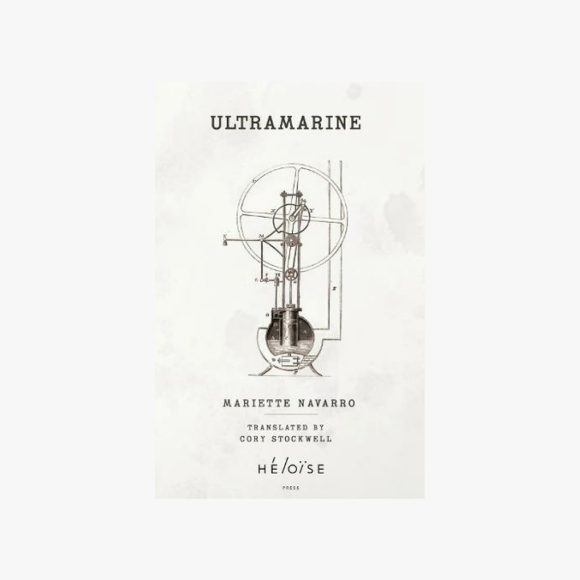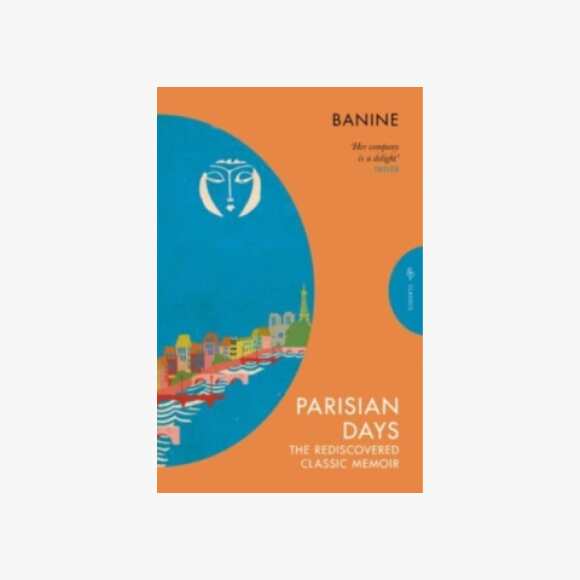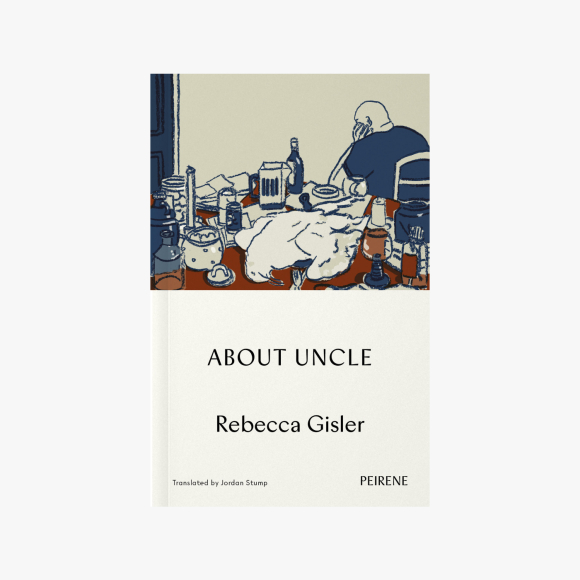It is August, which means it is time to celebrate and amplify the voices of women writing in languages other than English.
Women in Translation Month was developed to address the gender imbalance in translated literature, and to increase the number of global women’s voices available in English speaking countries.
We have put together a list of recommendations, including excellent books translated from various languages. All the books listed are available to buy on our website, with free shipping for subscribers.
Happy reading.
Translated from French
 A Leopard-Skin Hat by Anne Serre translated by Mark Hutchinson
A Leopard-Skin Hat by Anne Serre translated by Mark Hutchinson
The story of an intense friendship between the Narrator and his close childhood friend, Fanny, who suffers from profound psychological disorders. A series of short scenes paints the portrait of a strong-willed and tormented young woman battling many demons, and of the narrator's loving and anguished attachment to her.
 Ultramarine by Mariette Navarro translated by Cory Stockwell
Ultramarine by Mariette Navarro translated by Cory Stockwell
Narrated in the first person by a female captain, the only woman amongst the crew of a transatlantic ship, Ultramarine reflects on the fears, strengths, and insecurities of female authority. In a ghostly, almost dream-like, atmosphere, the captain agrees to break one of her rules, letting the crew take a dip in the middle of the ocean. Something changes during that unprecedented swim; an uncertain atmosphere takes over their journey and the ship. A simple business trip turned into a true adventure.
 Parisian Days by Banine translated by Anne Thompson-Ahmadova
Parisian Days by Banine translated by Anne Thompson-Ahmadova
The Orient Express hurtles towards the promised land, and Banine is free for the first time in her life. She has fled her ruined homeland and unhappy forced marriage for a dazzling new future in Paris. Now she cuts her hair, wears short skirts, mingles with Russian émigrés, Spanish artists, writers and bohemians in the 1920's beau monde - and even contemplates love. But soon she finds that freedom brings its own complications. As her family's money runs out, she becomes a fashion model to survive. And when a glamorous figure from her past returns, life is thrown further into doubt. Banine has always been swept along by the forces of history. Can she keep up with them now?
 About Uncle by Rebecca Gisler translated by Jordan Stump
About Uncle by Rebecca Gisler translated by Jordan Stump
In a small seaside town on the French coast lives Uncle. He shares his house with his niece and nephew, who look after him when they could be doing something – anything – else. A disabled veteran with odd habits, Uncle is prone to drinking, hoarding and gorging, not to mention the occasional excursion down into the plumbing, where he might disappear for days at a time. As the world begins to shut down, Uncle and his niece are forced even closer still. She starts to watch his every move – every bathroom break he takes, every pill he swallows – and finds herself relying on this man, her only companion.
Translated from Japanese
Convenience Store Woman by Sayaka Murata translated by Ginny Tapley Takemori
Keiko has never really fitted in. At school and university people find her odd and her family worries she'll never be normal. To appease them, Keiko takes a job at a newly opened convenience store. Here, she finds peace and purpose in the simple, daily tasks and routine interactions. She is, she comes to understand, happiest as a convenience store worker. But in Keiko's social circle it just won't do for an unmarried woman to spend all her time stacking shelves and re-ordering green tea. As pressure mounts on Keiko to find either a new job, or worse, a husband, she is forced to take desperate action...
Translated from Catalan
Mammoth by Eva Baltasar translated by Julia Sanches
The followup novel to International Booker-shortlisted Boulder is a story of queer motherhood and survival deep in the countryside Mammoth's protagonist is a disenchanted young lesbian. She's inexperienced, irritated by life, eager to gestate, and determined to strip everything else down to essentials. She seduces men at random, swaps her urban habitat for an isolated farmhouse, befriends a shepherd, nurses lambs, battles stray cats, waits tables, cleans house, and dabbles in sex work--all in pursuit of life in the raw. This small bomb of a novel, not remotely pastoral, builds to a howling crescendo of social despair, leaving us at the mercy of Eva Baltasar's wild voice.
Goodbye, Romona by Montserrat Roig translated by Megan Berkobien & Maria Cristina Hall
Monserrat Roig’s first novel, Goodbye, Ramona is a powerhouse story told through the point of view of three generations of women from the same family. Opening with scenes of a pregnant woman looking for her husband after a bombing, Goodbye, Ramona explores the role of family, women’s relationships with men, the influence the weight of history and events out of their control have on them, and the silence in which they live their lives. Goodbye, Ramona is an historical and social mosaic seen through the lives and experiences of the female characters.
Translated from Spanish
Time of the Flies by Claudia Piñeiro translated by Frances Riddle
Life after crime from the International Booker-shortlisted author of Elena Knows Fifteen years after killing her husband's lover, Inés is fresh out of prison and trying to put together a new life. Her old friend Manca is out now too, and they've started a business - FFF, or Females, Fumigation, and Flies - dedicated to pest control and private investigation, by women, for women. But Señora Bonar, one of their clients, wants Inés to do more than kill bugs--she wants her expertise, and her criminal past, to help get her kill her husband's lover, too. Crimes against women versus crimes by women; culpability, fallibility, and our responsibilities to each other--this is Piñeiro at her wry, earthy best, alive to all the ways we shape ourselves to be understandable, to be understood, by family and love and other hostile forces.
Translated from Italian
Those Who Leave and Those Who Stay by Elena Ferrante translated by Ann Goldstein
Set in the late 1960s and the 1970s, Those Who Leave and Those Who Stay continues the story of the feisty and rebellious Lina and her lifelong friend, the brilliant and bookish Elena. Lina, after separating from her husband, is living with her young son in a new neighbourhood of Naples and working at a local factory. Elena has left Naples, earned a degree from an elite college, and published a novel, all of which has opened the doors to a world of learned and fascinating interlocutors. The era, with its dramatic changes in sexual politics and social costumes, with its seemingly limitless number of new possibilities, is rendered with breathtaking vigour. This third Neapolitan Novel is not only a moving story of friendship but also a searing portrait of a rapidly changing world. Since the publication of My Brilliant Friend, the first of the Neapolitan Novels, Elena Ferrante's fame as one of today's most compelling, insightful, and stylish authors has grown. She has gained admirers among authors, artists, and critics. But her most resounding success has undoubtedly been with readers, who have discovered in Ferrante a writer who speaks with great power and beauty of the mysteries of belonging, human relationships, love, family, and friendship.
Translated from Bengali
The Yogini by Saṅgītā Bandyopādhyāẏa translated by Arunava Sinha
With her days split between a passionate marriage and a high-octane television studio job, Homi is a thoroughly modern young woman until one day she is approached by a yogi in the street. This mysterious figure begins to follow her everywhere, visible only to Homi, who finds him both frightening and inexplicably arousing. Convinced that the yogi is a manifestation of fate, Homi embarks on a series of increasingly desperate attempts to prove that her life is ruled by her own free will, much to the alarm of her no-nonsense husband and cattily snobbish mother.
Her middle-class Kolkata life, and the relationships that define her identity, are disturbed to the point of disintegration. Following the inexorable pull of tradition, the mystic forces that run beneath the shallow surface of our modern existence like red earth beneath the pavements, Homi ends up in Benaras, the holy city on the banks of the Ganga, where her final battle with fate plays out.
Translated from Welsh
This House by Sian Northey translated by Susan Walton
Grief, solitude, and the inner call to be freed from her past are the threads that beautifully and tightly intertwine in this novel.
Anna has lived alone for decades. She is cocooned by, and marooned in, an isolated cottage called Nant yr Aur in the Welsh mountains. The arrival of Siôn, a young man who seems strangely at home in the house, leads to an unpicking of Anna’s past.
As Anna’s relationship with Siôn develops, her perspective on the solidity of her past shifts. Uncertainty, distortion, illusion and subtle betrayal are gradually exposed. Ultimately, a quietly devastating revelation changes the lives of both Siôn and Anna.
Translated from Greek
Brandy Sour by Constantia Soteriou translated by Lina Protopapa
When it was built in the 1950s, nothing symbolised Cyprus entering the modern world like the Ledra Palace Hotel. In Constantia Soteriou’s jewel of a novella, the ambitions and shortcomings of the island’s turbulent twentieth century are played out among its occupants. Among them we meet the king in exile who needs to drown his sorrows with a drink disguised to look like tea; the porter who, among the English roses of the hotel's gardens, secretly plants a rose from his village to make his rosebud infusions with; the UN officer who drinks lemonade to deal with the heat and the lies; and the cleaning lady who always carries her holy water with her. They are reluctant actors in history, evocatively captured in this moving, personal, and highly original portrait of civil strife and division.